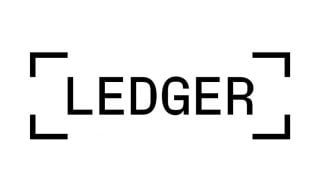9 Best Crypto Wallets for July 2025
Many, or all, of the products featured on this page are from our advertising partners who compensate us when you take certain actions on our website or click to take an action on their website. However, this does not influence our evaluations. Our opinions are our own. Here is a list of our partners and here's how we make money.
The investing information provided on this page is for educational purposes only. NerdWallet, Inc. does not offer advisory or brokerage services, nor does it recommend or advise investors to buy or sell particular stocks, securities or other investments.
Crypto wallets are a way to store your digital assets, and come in two varieties: Hot and cold wallets. In the most basic terms, hot wallets are connected to the internet, while cold wallets are not. It's important to distinguish crypto wallets from crypto exchanges: An exchange, like Coinbase or Gemini, facilitates a lot of the work of holding and trading cryptocurrencies for you. Wallets, on the other hand, are for more advanced crypto users. They give you more freedom and control over your crypto, but you'll also be fully responsible for managing the cryptocurrencies you buy, hold and sell yourself.
🔥 Best hot crypto wallets
Hot wallets are usually free and offer add-on services such as trading or staking in exchange for fees. A hot wallet makes it fairly easy to carry out crypto transactions, but it may be more vulnerable to hackers.
Crypto wallet | Basic features | Standout feature |
Assets supported: 300+ Cold storage conversion: Yes, via WalletConnect. Staking/DeFi support: Yes. | Multi-party computation (MPC) security. | |
Assets supported: 1,000+ Cold storage conversion: Yes, on desktop. Staking/DeFi support: Yes. | Easily connects to a highly-rated trading app. | |
Assets supported: 300+ Cold storage conversion: Yes. Staking/DeFi support: Yes. | Detailed educational content. |
Zengo
Assets supported: 300+
Can convert to cold storage: Yes, via WalletConnect.
Staking/DeFi support: Yes.
Zengo has emerged as a next-generation wallet that claims to build on the technology of previous wallets. Rather than seed phrases and private keys, Zengo uses a form of cryptography known as multi-party computation, or MPC, to secure assets and perform transactions. Zengo claims this is the first instance of a consumer wallet (as opposed to an institution) using MPC. Seed phrases and private keys have been at the heart of self-custody in crypto since the beginning, but Zengo aims to enhance security while doing away with the issues that come from managing your own keys and seed phrases. The company says that as of April 2025, no Zengo wallets have been hacked or stolen.
The biggest downside to Zengo is that it lacks support for some very popular cryptocurrencies, including Bitcoin Cash and Polkadot .
How do we evaluate crypto wallets?
We look at more than 15 factors to evaluate crypto wallets, including supported cryptos, integrations, platforms, hot to cold conversion, security, ease of use and more.
Our star ratings range from poor (one star) to excellent (five stars). For more details about the categories considered when rating wallets and our process, read our full methodology. Our aim is to provide our independent assessment of providers to help arm you with information to make sound, informed judgements on which ones will best meet your needs. We adhere to strict guidelines for editorial integrity.
Crypto.com Onchain
Assets supported: More than 1,000.
Can convert to cold storage: Yes, on desktop.
Staking/DeFi support: Yes.
Crypto.com Onchain (formerly Crypto.com DeFi Wallet) is a wallet created by a company mostly known for its crypto exchanges. It’s specifically tailored for use in what is known as decentralized finance (DeFi), which is a sector of the crypto world focused on lending, saving and other financial products that don’t rely on a central broker. Users of Crypto.com Onchain can use their crypto holdings to interact with DeFi products both on their mobile app and in a browser extension. It also has a desktop app that integrates with Ledger hardware wallets.
Crypto.com Onchain emerged as a winner here thanks to the wallet's connection to the main Crypto.com app. This makes it extremely simple to use Crypto.com's well-reviewed centralized trading app, then transfer assets to your own self-custody wallet. Note, however, that for BTC, there is a 0.0008 BTC withdrawal minimum (a little more than $60 at the time of last update). So you'd need more than $60 worth of BTC to instantly transfer it to your Onchain wallet.
Guarda
Assets supported: More than 300.
Can convert to cold storage: Yes.
Staking/DeFi support: Yes.
Guarda is a free, all-purpose crypto wallet whose users can access their crypto via mobile, desktop or browser extension. It supports more than 300 digital assets. Users of Guarda can move crypto into cold storage through an integration with the hardware wallet Ledger. Guarda also has staking programs available.
Other hot wallets to explore
Exodus
Assets supported: More than 250.
Can convert to cold storage: Yes.
Staking/DeFi support: Yes.
Exodus offers a solid set of software tools, including a mobile app, a desktop app and a browser extension. Its products allow users to buy, trade or stake cryptocurrency directly from their wallets, and it has an integration with the Trezor cold wallet intended to help people easily move crypto from hot to cold storage. Exodus, which is free to use, also has a solid library of explanatory content for people who are learning about crypto.
Trust Wallet
Assets supported: More than 10 million digital assets and over 100 blockchains.
Can convert to cold storage: Yes, to Ledger via browser extension.
Staking/DeFi support: Yes.
Trust Wallet is another storage product that operates in partnership with a major crypto exchange. It is the official wallet of Binance, the international digital asset firm, and that partnership gives users the ability to buy, sell and trade directly from their wallet. It says it supports more than 10 million types of digital assets, though this should probably be taken with a grain of salt, as CoinMarketCap only puts the number of actively circulating cryptocurrencies at about 10,000. Trust Wallet also does not provide a full list of supported cryptocurrencies on its website. However, by supporting more than 100 blockchains, it's likely the wallet will be able to support just about any cryptocurrency you come across.
Coinbase Wallet
Assets supported: Thousands.
Can convert to cold storage: Yes.
Staking/DeFi support: Yes.
You’ve heard of Coinbase. The company operates the largest U.S.-based crypto exchange. But Coinbase Wallet is a separate product that allows users to store cryptocurrency themselves rather than keeping it in the custody of Coinbase. Because the Coinbase Wallet was created by Coinbase, it integrates easily with its company’s exchange and may be a good introduction for users who haven’t used a non-custodial wallet before.
The free application has some other strengths, such as mobile and browser-based connections to decentralized applications. It also lacks some functionality offered by competitors, such as a desktop app, though its browser extension connects to the Ledger hardware wallet.
MetaMask
Assets supported: More than 650,000, with the option to manually add unsupported ERC-20 assets.
Can convert to cold storage: Yes.
Staking/DeFi support: Yes.
If you’re a regular user of applications on the Ethereum blockchain, chances are you’ve come across MetaMask. Free and open-source, MetaMask can store any digital asset that’s built on Ethereum. MetaMask also integrates with many of the “Web3” applications that exist on the Internet and require crypto transactions to work.
MetaMask has mobile and browser-based wallets, though it does not have a desktop app. It also offers staking and DeFi apps through its MetaMask Portfolio feature, and integrations with multiple hardware wallets including Ledger and Trezor. Just remember that if you’re not a big user of Ethereum and its related tokens, MetaMask might not be much help to you.
How all our ranked hot wallets compare
There is a large selection of hot wallets on the market, and most of them can support hundreds or even thousands of cryptocurrencies. They also generally can hold at least some types of NFTs, or non-fungible tokens, and many connect directly to exchanges where you can buy or sell crypto.
Zengo | 4.8 |
Crypto.com Onchain | 4.8 |
Guarda | 4.6 |
Exodus | 4.5 |
Trust Wallet | 4.4 |
Coinbase Wallet | 4.3 |
MetaMask | 4.0 |
🧊 Best cold wallets
Cold wallets are usually gadgets that are disconnected from the internet that help you store sensitive crypto information. They tend to cost money, because you have to buy a piece of actual hardware that’s set up to store your crypto. Because they are not connected to the internet, they may be harder for other users to reach. But if you lose the actual device, recovery could be very difficult.
While there are ways to do this yourself, hardware wallets come preloaded with software and other usability and security features that make the process smoother.
Cold wallets cost more than hot wallets, in part because you’re buying an actual, physical product. When you’re comparing crypto wallets, you may want to consider details such as price and security measures. If you also use a hot wallet, you should check to make sure the hardware you’re considering will work with your software wallet.
Here are NerdWallet’s top picks for cold crypto wallets.
Ledger
Assets supported: More than 5,500.
Can convert to online storage: Yes.
Staking/DeFi support: Yes.
Ledger is one of the best-known names in crypto wallets. Its prices range from around $79 to $399, and Ledger can integrate with many popular software wallets such as Crypto.com and Guarda. Ledger has a highly rated mobile app, plus a dedicated desktop app and a browser extension. Ledger also has two-factor authentication available, and a library of educational content for users.
Trezor
Assets supported: More than 9,000.
Can convert to online storage: Yes.
Staking/DeFi support: Yes.
Trezor offers some of the highest-end hardware available in crypto storage. While its entry-level model (the Tezor Model One) costs around $49, it also has a more expensive model (price at last update was $169) with a touch screen. Trezor has integrations with other crypto firms such as Exodus, though it also provides built-in services such as staking and crypto purchases through its software products. It has a desktop offering, as well as a mobile app (Trezor Suite Lite) for Apple and Android. One slight inconvenience: Trezor wallets do not have Bluetooth capability, although the company notes that this is a deliberate decision meant to reduce the wallet's vulnerability to cyberattacks.
How our ranked cold wallets compare
Ledger | 5.0 |
Trezor | 4.0 |
Learn more about crypto wallets
What is a crypto wallet?
Crypto wallets provide a way to protect secret information that gives you control over your digital assets. This is not something you want to leave to chance; if you lose access to these “private keys,” you may never get your cryptocurrency back.
How to choose a crypto wallet
The first question when choosing a crypto wallet is whether you want a hot wallet or a cold wallet. The main difference between a hot wallet and a cold wallet is that hot wallets are connected to the internet while cold wallets are not.
Other questions to ask when comparing wallets include: How many types of digital assets are supported, how easy is it to move crypto offline, into a cold wallet, and are there resources for in-app staking or rewards programs?
What are non-custodial crypto wallets?
Non-custodial crypto wallets are the type of storage option preferred by many crypto enthusiasts because they place you in control of your own private data. Unlike when you keep assets on a cryptocurrency exchange, with a non-custodial wallet, you don’t have to trust a third party to secure your private keys.
That’s not to say non-custodial wallets are without risk. They are less forgiving of errors such as lost passwords, and you have to trust that your wallet’s hardware and software will work as intended.
And moving assets between wallets regularly can become costly because of transaction fees imposed by underlying blockchain networks. For these reasons some crypto users have multiple types of wallets: some for long-term safekeeping and others for active trading.
One way to choose a wallet is by looking at the website of the cryptocurrency you’re hoping to store. There are many single-purpose solutions built for individual cryptocurrencies. For example, MetaMask is often considered a top Ethereum wallet because it focuses solely on ERC-20 tokens. Similarly, Electrum is among the top Bitcoin wallets because it's built specifically for Bitcoin power users.
But if you’re planning to protect multiple kinds of cryptocurrencies in one place, it’s a good idea to shop around.
» Not ready for a wallet? Here are the best crypto exchanges and platforms
Are there other ways to invest in crypto?
You can also keep your crypto on a cryptocurrency exchange, but then you're trusting a third party to secure your assets. Some popular brokerages, such as Fidelity and Robinhood, allow you to buy crypto through accounts with them as well.
Bitcoin ETFs and Ethereum ETFs are also an option for 401(k) investors, or others who can't invest directly in crypto — but these, too, involve trusting someone else to safeguard your crypto investment. If you want total control of your crypto assets, you'll need a wallet.
Can I recover my assets if I lose access to my crypto wallet?
Hot crypto wallets generally offer an account recovery process if you forget your username or password, although the terms of that recovery process may vary between providers.
If you physically lose a cold crypto wallet, or it breaks, don't despair — the crypto isn't actually gone; cold wallets just store private key information needed to access or move your crypto. The cold wallets we review offer users the ability to regenerate their wallets using a seed recovery phrase in the event of loss, theft or damage.
Can I move crypto from a traditional online broker to a crypto wallet?
That depends on the broker. Some, like Robinhood, do work with external wallets, while others do not. For more information, check out our roundup of the best crypto exchanges and apps.
How do I buy crypto?
Once you've set up a crypto wallet, you can buy crypto to put in it via crypto exchanges, certain traditional brokers, certain money transfer services, Bitcoin ATMs and more. Our article on how to buy Bitcoin gives a good overview of the current options for buying crypto.
















